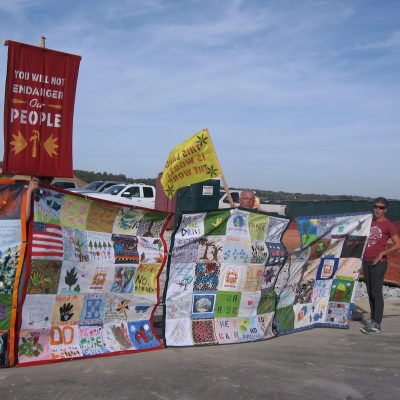by Douglas D. Kaufman
Why does the United States, which emits more greenhouse gases than any other country, have so much trouble following through on our fair share of carbon reductions? This is in spite of American scientists being world leaders in studying and understanding the mechanisms by which climate change occurs. Is it because Americans don’t have enough information about climate change? Or is it simply that they do not care?
In her book, Living in Denial, sociologist Kari Norgaard turns both these assumptions upside down. When there are no easy solutions
The book is a result of a year of study in a small Norwegian village in the winter of 2000-2001, what was at the time the warmest winter in 130 years. Yet, in spite of snow coming two months later than normal, of the ski team having to travel two hours north to find snow, there was very little conversation or action about climate change.
Norway is a liberal, socialist democracy known for peace and social justice activism throughout the world. There is almost no literal climate denial, where people doubt that carbon emissions through burning fossil fuels is causing the planet to warm, causing catastrophic changes to our climate.
But the Norwegians were denying the implications of climate change. They are a wealthy nation because of their oil production from the North Sea. And so they were anxious about climate change, but were reticent to do something about it.
Was the problem a lack of knowledge? To the contrary, people who learn more about climate change become less concerned and feel less responsible. People pay less attention as soon as they discover that there are no easy solutions.
Was the problem that they didn’t care about climate change? Again, to the contrary, when Norgaard could get them to talk about the climate, they were very concerned and anxious about it. But climate change leaves people feeling helpless and guilty, and so we avoid talking or thinking about it.
Individualism and Distrust
In the final chapter Norgaard applies her insights to the American context. She notes two additional issues for the American public. One is our strong individualism that makes it very difficult to address collective issues such as the climate. A second is our distrust of our political system.
The book does not carry a religious emphasis but it offers us a window on ways that Christian congregations can have a significant role in helping American society address climate change. We have a long history, after all, of overcoming helplessness and guilt. Through worship and preaching, we can offer hope instead of fear and trust in God and one another rather than retreat into individualism.
As I begin my work this year on shaping Mennonites to become people who care more about climate change, I want to focus especially on those who understand the science but don’t know what to do about their feelings of fear and guilt associated with it. I want to plan several encounters over the course of the year with pastors and other leaders that can help us know how to respond pastorally to climate change.
A helpful resource that both builds on Norgaard’s work and offers implications that can guide theological reflection is Tom Christian Myers, “Understanding Climate Change as an Existential Threat” De Ethica: A Journal of Philosophical, Theological and Applied Ethics Vol. 1, No. 1 (2014): 53-70.
Douglas Kaufman is director of pastoral ecology for the Center for Sustainable Climate Solutions. He is preparing a curriculum and training sessions on climate change for church leaders.
